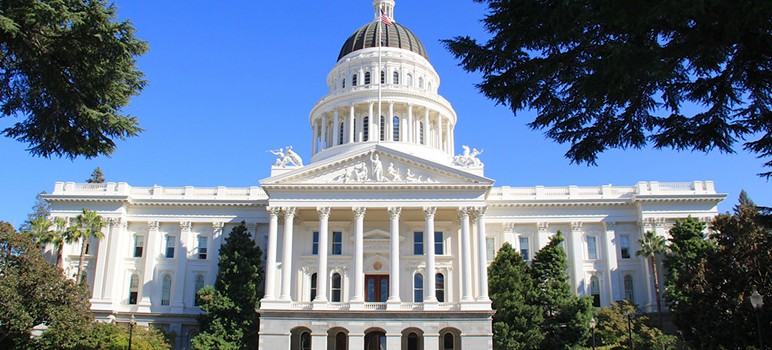California workers will be guaranteed five paid sick days a year starting Jan. 1, up from the three days that employers are currently required to provide, thanks to Senate Bill 616.
The bill also extends protections against retaliation to workers who are in a union, but excludes provisions that would have granted railroad employees access to unpaid sick leave.
It was a significant, but partial victory for proponents, including advocacy groups for families and women and dozens of unions. They originally sought seven days, but the final version was reduced in negotiations during the legislative process.
Also beginning this week under two new laws, employers in California can’t ask workers about their use of cannabis outside the workplace and can’t use hair or urine tests. Employees in construction are excluded, as are applicants for federal jobs with background checks.
The California Work & Family Coalition hailed the sick-pay law — one of several measures last session aimed at improving work-life balance — as “a commonsense change.”
But trade associations representing various industries such as the California Grocers Association and California Hotel & Lodging Association, as well as chamber of commerce groups throughout the state, argued that the law would hurt small businesses that have not recovered from the pandemic, are now dealing with inflation and can’t afford the additional cost of covering for sick workers.
The National Federation of Independent Business lists the new law among its top five “compliance headaches” for California’s small business owners in 2024, along with SB 848, which makes it unlawful for employers to refuse as many as five days of “reproductive loss leave” for miscarriages, failed adoptions and other events.
The state Chamber of Commerce had the sick leave law on its “job killer” list and recently issued guidance for employers to navigate the law’s complexities.
There’s no federal law that requires employers to give workers paid sick leave. California became the second state in the nation to adopt a paid sick leave policy in 2014, but now provides less time than 15 states and many of its own cities, including San Diego, Los Angeles, San Francisco, Oakland and Berkeley.
Upon signing the bill on Oct. 4, Gov. Gavin Newsom said too many people were still having to choose between skipping a day’s pay and taking care of themselves or their family members when they get sick.
“We’re making it known that the health and wellbeing of workers and their families is of the utmost importance for California’s future,” he said in a statement.
This isn’t the first time a sick leave expansion has been introduced, but the COVID-19 pandemic amplified the need. In March 2021, a new law required larger employers to provide as many as 10 more days for quarantines or vaccine side effects. But that benefit went away, along with federal tax credits that paid for it, six months later.
Starting in the new year, California employers will be barred from asking workers about their use of cannabis outside of work, and from discriminating against them because of it.
Two bills signed into law by Newsom in the past couple of years aim to strengthen the state’s legal cannabis industry by updating outdated laws. Assembly Bill 2188, which Newsom signed in 2022, will prohibit employers from using the results of hair or urine tests for marijuana — which can detect traces of cannabis for days or weeks — in their decisions to hire, fire or penalize workers.
When the governor signed AB 2188 along with other cannabis-related bills in 2022, he said in a press release that “rigid bureaucracy and federal prohibition continue to pose challenges to the industry and consumers.”
SB 700, which Newsom signed this year, clarifies AB 2188 by amending the state’s Fair Employment and Housing Act to bar employers from asking job applicants about their prior use of cannabis.
California NORML, a nonprofit organization that advocates for consumer rights related to cannabis, sponsored AB 2188. In its argument supporting the bill, the organization said hair or urine testing for marijuana does not detect actual impairment, a fact the federal government has acknowledged. “Studies indicate that metabolite tests for past use of marijuana are useless in protecting job safety,” the group said.
The exceptions under the AB 2188 would be for workers in the building and construction industry and for job applicants and employees in positions that require a federal background investigation or clearance.
The National Federation of Independent Business lists the new laws among the top five “compliance headaches” for California’s small business owners in 2024. California Chamber of Commerce opposed AB 2188, though it removed its “job killer” label after some revisions, saying before the bill was signed that employers risk liability when they “take legitimate disciplinary measures” against employees. “Employers must be able to keep their workplace safe by disciplining employees who arrive at work impaired,” the group said.
But AB 2188 does not prevent employers from using other tests to detect impairment, such as blood tests.
SB 700 accounts for employers’ rights to ask about an applicant’s criminal history, but the employer may not discriminate against an applicant when it finds information about past use of cannabis related to criminal history unless otherwise permitted by law.
In 2016, California became the first state to legalize marijuana for medicinal purposes, and the state’s voters legalized its recreational use in 2016. Recreational use of marijuana is now legal in 24 states and Washington, D.C.
Sameea Kamal and Levi Sumagaysay are reporters with CalMatters.


Glad to hear things are getting more sane wrt cannabis. I did my part a couple years ago when I was taking bids for an electrical contractor. One was really proud of the fact they were doing drug tests. Their bid was very high compared to other bids, perhaps to pay for all that testing. I didn’t hire them, mostly because of the company’s unnecessary intrusion into the private lives of its employees.